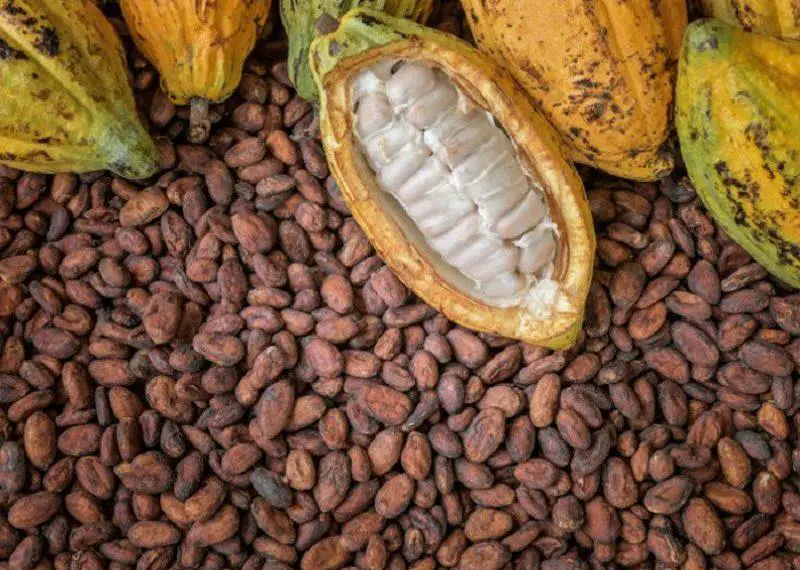Cocoa and Chocolate companies have been asked to pay more in premiums. The move which is being spearheaded by Ivory Coast and Ghana is aimed at supporting cocoa farmers’ wages.
The implementation of high premiums may however, take little longer bearing to the economic effects that have been brought about by the Covid-19 pandemic.
Head of Ivory Coast’s Coffee and Cocoa Council (CCC) Yves Kone acknowledged that the countries have limited leverage to force the hands of companies suffering from a fall in global demand due to the pandemic.
Ivory Coast and Ghana, which together produce about two-thirds of the world’s cocoa, introduced a $400 per tonne premium this season termed the living income differential (LID) to increase wages for farmers, many of whom live in poverty.
But Ivory Coast was forced to repeatedly slash a separate quality premium that exporters pay, known as the country differential, in response to weak sales.
Premium payments
In February, the CCC turned the premium into a more than $350-per-tonne discount, mostly cancelling out the LID. Ghana has also lowered its country differential.
“Because they cannot attack the LID, they prefer to attack the country differential, which amounts to exactly the same thing,” Kone said in an interview.
Also Read: Impact of Covid-19 on Africa underestimated- new report
Kone said he expected talks to resume in the coming weeks, adding that a country differential of around $140 dollars would allow Ivorian authorities to pay farmers a good price during the upcoming 2021/22 season.
Export contracts are currently selling with a discount on the country differential of more than $140.
Alexander Ferguson, a vice president of the World Cocoa Foundation (WCF), an industry body, said companies wanted to ensure that farmers receive more income.
Kone said Ivory Coast was aiming to hold down annual cocoa production to 2 million tonnes by gradually removing cocoa farms from protected forests. The country produced 2.15 million tonnes during the 2019/2020 season.
The CCC also aims to become a direct exporter of beans and semi-finished cocoa products in the next two years in order to reduce the influence of multinational companies in the sector.
Row with multinational companies
Last year, the U.S.-based Hershey was accused of sourcing unusual high volume of physical cocoa on the ICE futures exchange in order to avoid paying premiums, known as a living income differential (LID) to elevate poverty levels in the countries among local farmers.
The arrangement, called the decent income differential, is meant to help improve the lives of peasant farmers, the producers of the cocoa crop.
Abidjan and Acca accused the companies – Hershey and Mars of changing their suppliers and of sourcing cheaper cocoa beans in a bid to avoid paying the premuims.
World’s leading cocoa producers
Ivory Coast and Ghana are the world’s leading producers of cocoa.
But much of the crop is exported to international markets in its raw form, some times with little value addition.
The Ivorian and Ghanaian cocoa councils have accused the companies of a conspiracy to keep farmers in poverty.
In a response, Hershey said it was sourcing the crop according to ‘the needs of our business’ while Mars claimed it had supported initiatives to improve incomes and livelihoods of farmers.
Hershley
Hershley is an American multi-national company and largest chocolate manufacturer in the world.
With over $6 billion dollars in sales every year, the Hershey Company is arguably among the top chocolate manufacturers in the world. Its products are sold in over 70 countries and includes Whoppers, Almond Joy, and Twizzlers.
The U.S. based company came to the West Africa to broaden its cocoa supply and in return was to offer a reliable market for the produce and also give out premiums to alleviate poverty in the region among farmers.
Despite the company’s philanthropic model based on social protection and environmental program, it has been embroiled in volatile ethical values especially in child labor in West Africa.
Also Read: Inside Nigeria’s plan to stop rejection of its crops by other nations
Ghana and Ivory Coast produce two-third of the world’s cocoa and have always barred other stakeholders in running any scheme on behalf of Hershley.
Poverty
Cocoa farmers in Ghana earn a per capita daily income of approximately USD $0.40-$0.45 from the produce. This amounts to an annual net income of USD $983.12-$2627.81 and accounts for two thirds of cocoa farmers’ household income.
With low income and weak economic resilience, cocoa farmers struggle to make ends meet. A 2010 study found that cocoa farming households’ expenditure, excluding farming inputs, exceeded their mean total income.
This poverty has a direct impact on children in cocoa-growing communities. Children may engage in child labor because their parents cannot afford to hire adult labor.
